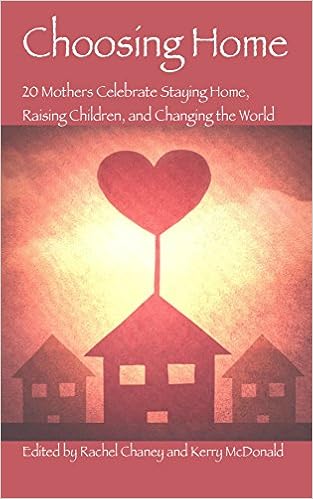John Holt, the well-known author and homeschooling pioneer, coined the term "unschooling" in November 1977 in the second issue of his fledgling newsletter for homeschoolers, Growing Without Schooling (GWS).
In this issue, Holt writes:
"GWS will say 'unschooling' when we mean taking children out of school, and 'deschooling' when we mean changing the laws to make schools non-compulsory and to take away from them their power to grade, rank, and label people i.e. to make lasting, official, public judgments about them."
It's fascinating to consider how these terms have evolved since Holt's definitions emerged. While initially meant to describe removing children from school, unschooling today is often more narrowly defined as a specific homeschooling approach that is self-directed rather curriculum-driven. The term deschooling has also evolved from Holt's initial definition advocating for eliminating compulsory schooling laws that was largely influenced by his interactions with Ivan Illich, the author of the 1970 book, Deschooling Society.
Today, "deschooling" is often thought of as the period of time it takes a child who has been schooled to overcome a schooled mindset and reignite her natural learning instincts. As most of us adults were also schooled, the modern use of the "deschooling" term applies to us as well, as we try to shed the idea that one needs to be schooled in order to learn.
Language changes, and it is no wonder that as the homeschooling population has soared over the last four decades its terms would also be stretched and shaped. This is a sign of success. Holt never imagined that more than two percent of the U.S. school-age population would be homeschooled; today, the percent is nearly double that.
I appreciate what the term "unschooling" now means for many families, particularly for the homeschooling families who navigate the many educational philosophies and approaches available to them in search of the best fit. I also think it is worthwhile to reclaim the term's origins and dig deeper into Holt's initial message--not because we should change how we currently use the language of unschooling, but so that we can expand it.
In the first pages of Holt's inaugural issue of GWS, he writes about his disinterest in alternative schools except to the degree that they allow more families to take or keep their children out of conventional schools. Holt writes:
"GWS will not be much concerned with schools, even alternative or free schools, except as they may enable people to keep their children out of school by 1) calling their own home a school, or 2) enrolling their children, as some have already, in schools near or far which then approve a home study program."
In other words, Holt wasn't supporting alternative schools but alternatives to school that would enable more parents to remove children from conventional schooling for unschooling--often using homeschooling as a legal designation where necessary. At the time, before homeschooling was fully legally recognized in all U.S. states by 1993, these alternatives may have been the only option for some families. I would argue that today, for many families, these alternatives to school are also the only option they have for abandoning forced schooling for unschooling. While there are plenty of single parents and two working parents who make family-centered unschooling work beautifully, for many parents this is not possible.
There are also many families who are deeply committed to unschooling but find as their children grow that their kids crave new and different opportunities, often surrounded by a gaggle of other kids. Some of these children end up going to school after years of homeschooling. With more alternatives to school, Holt's vision of enabling "people to keep their children out of school" would be more widely successful.
By reclaiming Holt's initial definition of the word "unschooling" to mean "taking children out of school," and appreciating his tolerance for alternatives to school that make unschooling more possible for more families, we can help to make unschooling a more expansive, comprehensive term. We can affirm the homeschooling families who allow their children to learn at home and throughout their community in a self-directed way, while also embracing alternatives to school that empower parents to take charge of their child's education and remove them from forced schooling. (The recent Boston Globe article on unschooling describes this in more detail.)
And while homeschooling is now legal in the U.S., (but sadly not elsewhere) thanks to the efforts of Holt and others, compulsory schooling laws continue to define education as schooling and trap young people in coercive schooling environments for most of their childhood. I wrote recently about the Four Things That Would Happen If We Eliminate Compulsory Schooling Laws, including a disentangling of education from schooling.
So while the modern use of the term "deschooling" is helpful and important in allowing children (and ourselves!) ample time and space for detaching from a schooled mindset of learning, we would be wise to also expand its definition to include Holt's ideas for challenging compulsory schooling laws as a whole. In fact, in the introduction to his 1981 book, Teach Your Own, Holt writes:
"At first I did not question the compulsory nature of schooling. But by 1968 or so I had come to feel strongly that the kinds of changes I wanted to see in schools, above all in the ways teachers related to students, could not happen as long as schools were compulsory."*
However we use the terms "unschooling" and "deschooling," the goal is clear: Help more parents to remove their children from coercive schools and create a world in which education is separate and distinct from schooling.
*Editorial note: John Holt's co-author of Teach Your Own, and my colleague at the Alliance for Self-Directed Education, Pat Farenga, points out that Holt's position on compulsory schooling laws wasn't black and white. In the early pages of Teach Your Own, Holt shares his letter to the ACLU that states:
"Though the courts have not yet agreed, compulsory school attendance laws, in and of themselves, seem to me a very serious infringement of the civil liberties of children and their parents, and would be so no matter what schools were like, how they were organized, or how they treated children, in other words even if they were far more humane and effective than in fact they are" (p. 10).
But later in Teach Your Own, Holt calls for restraint when challenging compulsory schooling laws, particularly in light of the larger effort at the time (1981) to make homeschooling legally viable throughout the U.S. Holt writes: "Beyond that, either in asking for narrow rulings or speaking of any we may be able to win, we must be careful not to make large public boasts and outcries to the effect that 'this means the downfall of compulsory schooling'" (pp. 214-15).
I would argue that, thanks to the great efforts of Holt and others, we no longer need to avoid these "large public boasts."

Pre-order my new book today! Unschooled: Raising Curious, Well-Educated Children Outside the Conventional Classroom
























No comments:
Post a Comment
Note: Only a member of this blog may post a comment.